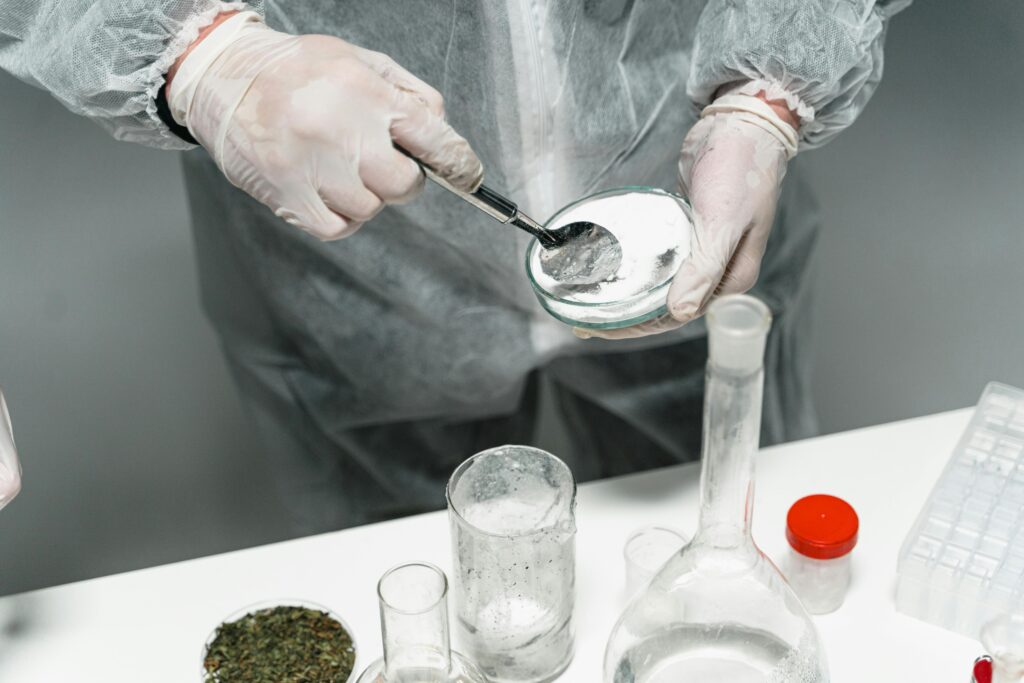Sep 1st, 2024
The Consequences of Manufacturing Illegal Substances in Oregon

Facing charges for manufacturing controlled substances in Oregon is a serious and unnerving experience, carrying the potential for severe penalties, including substantial fines and lengthy prison sentences. Under Oregon law, the unauthorized production of drugs is pursued vigorously by law enforcement, with even more stringent consequences for aggravated circumstances such as involvement in violence or gang activities. Understanding the complexities of these charges and the legal process is crucial to protecting your rights and achieving the best possible outcomes in these challenging situations.
Understanding the Severity of the Charges
Manufacturing drugs in Oregon carries severe penalties, reflecting the state’s stringent stance on drug-related offenses. Facing such charges can be an incredibly distressing experience, as the legal and personal consequences can be life-altering. Under Oregon law, it is strictly illegal to manufacture controlled substances, and law enforcement agencies are known for their rigorous pursuit of these cases. If caught manufacturing a controlled substance, an individual can face substantial fines that can amount to tens of thousands of dollars, along with long prison sentences that may extend for several years. The severity of the penalties is designed to deter such activities and maintain public safety.
Moreover, the situation can become even more dire if the charges involve additional criminal activities. For instance, if the drug manufacturing operation is linked to acts of violence, gang-related actions, or racketeering, the legal repercussions can escalate significantly. These aggravated circumstances can lead to enhanced charges and stiffer penalties, including longer prison terms and higher fines. The compounded impact of these additional charges underscores the importance of securing competent legal representation. Experienced attorneys, like those at Gilroy Napoli Short Law Group, can provide critical defense strategies and aim for the most favorable outcomes under such challenging conditions.
What Constitutes a Controlled Substance?
Controlled substances are drugs regulated under federal and Oregon state laws because of their high potential for abuse and significant risk of harm. These regulations are part of a broader effort to protect public health and safety by controlling the distribution and use of certain drugs. Common controlled substances include heroin, cocaine, ecstasy, LSD, methamphetamine, and PCP. Each of these substances poses a substantial risk due to their addictive properties and potential for severe health consequences.
These drugs are classified into different schedules based on their medicinal properties, potential for abuse, and accepted medical use. The Controlled Substance Act, a key piece of federal legislation, outlines these classifications and provides a framework for enforcement. In Oregon, these regulations are enforced under the state’s health and safety codes, ensuring that the legal framework aligns with both federal standards and the specific needs of the state. This classification system helps to determine the legal status, penalties, and regulations associated with each controlled substance.
What Does Manufacturing a Controlled Substance Entail?
Oregon law takes an extensive approach to defining the unauthorized manufacture of controlled substances. This includes any activities related to the compounding, producing, deriving, processing, or preparing of these substances, whether done directly or indirectly through chemical extraction or synthesis. The law applies regardless of the sophistication of the production setup, meaning that even a small-scale meth lab in a home can lead to significant legal consequences.
Charges can be levied at any stage of the manufacturing process. This means that involvement from the initial preparation phases, such as gathering ingredients or setting up equipment, to the final production stages can all result in serious charges. The law is designed to cover all aspects of drug manufacturing to deter illegal production and protect public health. This broad definition ensures that law enforcement can intervene and prosecute individuals at various points in the drug production process, highlighting the importance of stringent legal compliance and the severe penalties for violations.
Elements of the Crime
To convict someone of manufacturing a controlled substance under Oregon law, prosecutors must prove certain elements. These include:
– The individual was involved in compounding, producing, manufacturing, processing, or preparing a controlled substance.
– The individual knew the substance being manufactured was controlled.
Even if the manufacturing process is incomplete, being involved in any stage of production can result in charges.
Penalties for Manufacturing Controlled Substances

Violating Oregon’s laws on manufacturing controlled substances is considered a felony. Convictions can lead to prison terms of three, five, or seven years, with fines reaching up to $50,000. The penalties can be harsher if the manufacturing involves additional criminal activities or significant amounts of the substance.
Aggravating Factors
Several factors can increase the severity of penalties for manufacturing controlled substances:
Previous Convictions: Prior drug-related convictions can add up to three years to the prison sentence for each qualifying conviction.
Significant Amounts: Manufacturing large quantities of certain substances can result in additional prison terms of three, five, or even 15 years.
Injury or Death: Causing severe injury or death during the manufacturing process can lead to extra prison time.
Presence of Minors: Manufacturing controlled substances around minors can result in additional prison terms, especially if a child is injured.
Further Penalties
Beyond prison time and fines, other penalties can include:
Deportation: Non-citizens convicted of manufacturing controlled substances can face deportation and be barred from re-entry to the United States.
Loss of Gun Rights: Convicted felons in Oregon are prohibited from purchasing or owning firearms.
No Expungement: Convictions for manufacturing controlled substances are not eligible for expungement.
Legal Defenses for Drug Manufacturing Charges
Facing charges for manufacturing controlled substances in Oregon is a serious matter with potentially severe consequences. However, there are several legal defenses that can be employed to challenge these charges and protect your rights. Understanding and leveraging these defenses is crucial to achieving a favorable outcome in court. Here are some common legal defenses used in drug manufacturing cases.
Illegal Search and Seizure
One of the most powerful defenses against drug manufacturing charges is the argument of illegal search and seizure. The American Constitution protects individuals from unlawful searches and seizures, meaning that any evidence obtained in this manner cannot be used in court. If law enforcement officers conducted a search of your property without a valid warrant or probable cause, your attorney could file a motion to suppress the evidence obtained from that search, potentially weakening the prosecution’s case.
Preparatory Actions
Another defense is that mere preparation to manufacture controlled substances is not enough to warrant a conviction. If no actual production of the substance took place, you cannot be convicted simply for gathering materials or making initial preparations. This defense hinges on the argument that preparatory actions do not constitute the actual crime of manufacturing.
Entrapment
Entrapment occurs when law enforcement officials use deceptive or coercive tactics to induce someone to commit a crime they otherwise would not have committed. If you can demonstrate that you were persuaded or harassed into manufacturing drugs by undercover officers or informants, you might have a valid entrapment defense. This defense requires showing that the idea to commit the crime originated with law enforcement, not with you.
Innocence
Proving your innocence is the most straightforward defense. This involves presenting evidence such as alibis, surveillance footage, or witness testimonies that clearly show you did not commit the crime. Solid evidence that places you elsewhere at the time of the alleged offense or proves you had no involvement in the manufacturing process can exonerate you completely.
Mistaken Facts
A mistaken facts defense applies when the substances involved in the alleged crime were not actually controlled substances. If you can prove that the materials found were legal and not intended for drug manufacturing, this defense can lead to a dismissal of charges. This requires a thorough examination of the evidence to confirm that the substances in question do not meet the legal definition of controlled substances.
Abandonment/Withdrawal
If you can demonstrate that you withdrew from participating in the manufacturing process before any illegal activity occurred, this can serve as a valid defense. Evidence of your intent to abandon the criminal activity and steps taken to disengage from the process can support this defense. This shows that you decided to stop the illegal conduct voluntarily and in a timely manner.
Statute of Limitations
Every crime has a statute of limitations, which is the time period within which legal proceedings must be initiated. In Oregon, if charges are brought against you after the statute of limitations for drug manufacturing has expired, your attorney can argue for a dismissal. This procedural defense ensures that individuals are not subjected to indefinite legal jeopardy for alleged past actions.
By understanding and effectively utilizing these legal defenses, individuals facing drug manufacturing charges in Oregon can significantly improve their chances of a favorable outcome. Working with experienced attorneys, such as those at Gilroy Napoli Short Law Group, can help ensure that your rights are protected and that you receive the best possible defense.
Get Legal Help
Facing charges of manufacturing controlled substances in Oregon requires the expertise of an experienced criminal defense attorney. The attorneys at Gilroy Napoli Short Law Group are well-versed in Oregon’s drug laws and can develop a strong defense strategy to reduce or dismiss your charges. If you are facing such charges, contact us for immediate assistance and a comprehensive defense to protect your rights and future.















